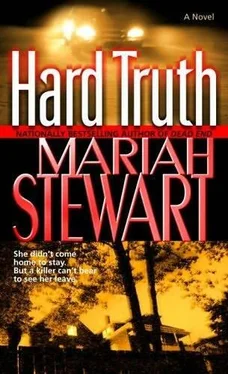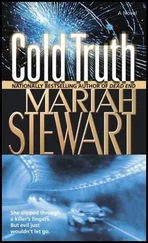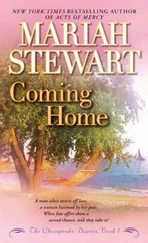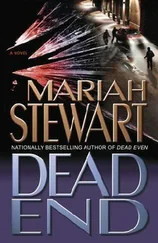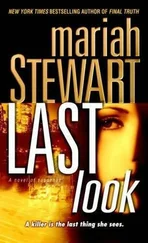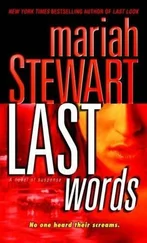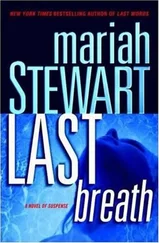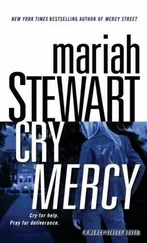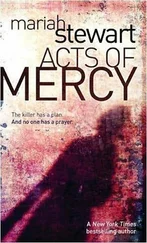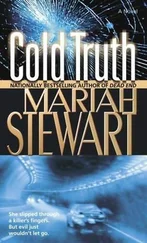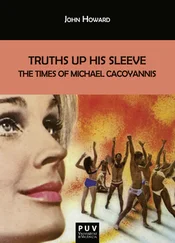But now it was time to return her focus to reality. She had work to do, a property to sell. A life to get back to.
She poured herself a cup of coffee and took it into the dining room, where she emailed a client to confirm a meeting he’d requested for the end of September. She paused to wonder where she’d be then. Would she still be here, in Callen, or would she have returned to Woodboro? So much depended on the speed with which the case was resolved, and how much all the publicity hurt her chances of getting a good price for the farm.
Her memo and her coffee both finished, she hit the Send button on her email and walked to the window. Stretching out the kinks from having sat too long in one position, she raised the window sash to let in the fresh morning breeze. A front that had blown in this weekend had brought cooler air and lower humidity. She filled her lungs, and decided to take a walk outside. A little exercise in mid-morning was a good thing, she reminded herself as she grabbed her running shoes and unlocked the back door.
The view over the back field was a familiar one. Delicate Queen Anne’s lace and sturdy cornflowers had turned the field into a study in white and blue, with a few wild black-eyed Susans thrown in for accent. The corn Gil Compton had planted in the far field was well over six feet tall, and Lorna wondered when the police would let him on the property with his tractor to harvest it.
She sat on the bottom step and exchanged her flip-flops for the Nikes. She’d just finished tying them when she remembered she’d brought the second of her mother’s urns downstairs on Saturday to take it to the pond, but hadn’t gotten there yet because of the rain. Today would be the day. She went back inside and picked up the urn, locked the door behind her, and set out for the pond.
Palmer’s Pond, as locals still referred to it, had at one time been a watering hole for the cattle, sheep, and horses that the earliest Palmers had raised. When cash crops like corn and wheat became more profitable, the pond was marked strictly for swimming and fishing. Mary Beth had told Lorna of many lazy summer days spent reading a favorite book on the banks, floating along mindlessly in a rowboat, and taking a dip with her friends to cool off from the heat. As much as her mother had loved the pond, it had come as no real surprise to Lorna that Mary Beth would want some bit of herself to remain there.
Lorna tucked the urn under one arm and trudged along the edge of the field until she reached the family graveyard. She walked around the fence and down the slight incline to the pond. The rowboat was still tied up where her mother had left it two years ago, and Lorna held on to its rope and pushed it out into the shallow water to see if it leaked. When it appeared to be watertight, she pulled it back to shore, placed the urn on the bottom of the boat, and climbed in. With the single oar that rested across the seat, she pushed off from the edge, and finding one oar a difficult steer, decided to simply let the boat drift aimlessly. Once it arrived near the middle of the pond, she removed the lid from the urn and held it over the side of the boat and tilted it slightly. Ashes sprinkled out in a thin shower of gray and floated singularly and in clusters on the rippled surface.
When the canister was empty, she filled it with water, replaced the top, and dropped it into the dark water.
“As you wished, Mom,” Lorna said. “Two down, one to go.”
She lowered herself to the bottom of the small boat, leaned back against the wooden seat, her hands locked behind her head, and looked up to watch the clouds gather into shapes. A dog morphed into a large bird. A tree changed before her eyes into a castle with three turrets. A sailboat fashioned itself into a snake. She closed her eyes, letting the gentle motion of the boat rock her to sleep, and take her where it would.
The bang of the boat against something solid woke her, and she sat up with a start. She’d drifted across the pond and struck the last remaining pile from the old dock. She sat up and grabbed hold of the rope that hung from its side, then pulled the rowboat to shore. Once on land, she tied the small craft to the piling and got out. Her mission completed, her break over, she started up the rise to return to the house.
At the top of the rise stood Fritz Keeler.
She startled when she saw him. “Oh. Hey.”
“Hey, yourself.” He was smiling and holding a huge bouquet of roses. “I knew you had to be here someplace. I stopped at the house and saw your car, but no one answered the door, so I thought maybe you were out for a walk. I’d been just about everywhere else. This was my last stop.”
He held out the roses. “I was afraid I’d have to take these back with me. They’re going to start to wilt pretty soon, without water.”
“They’re lovely, Fritz. Thank you.” She reached for the flowers. Their scents mixed, spicy and floral, and she inhaled deeply. “Simply beautiful. Your mother would be proud of your green thumb.”
“And not much more, I’m afraid.” He shoved his hands into the pockets of his jeans. “That FBI agent just left my house. He thinks I had something to do with those killings out here. I can’t believe anyone would think I could…” He shook his head. “Anyway, he had some other agents come and they searched my house and took stuff-I don’t even know what all they took, they were making a list of items.”
“They had a warrant?”
“No. He asked if they could search the house and I said sure. I have nothing to hide. What’s the worst they could find? The love letters my dad sent my mother from Vietnam?”
He shook his head again, almost imperceptibly this time, and looked beyond her. “I’ve never been suspected of any crime in my life, Lorna. The thought that anyone could believe I would hurt someone else is killing me. I don’t know what to do.” He tried to laugh. “So, of course, when in doubt, take flowers to a pretty lady. Take flowers to a friend.”
“I am your friend, Fritz.” She held out her hand, and when he took it, his own was shaking. “Let’s walk back to the house, and you can tell me what happened.”
“The doorbell rang and this tall guy was standing there and he asked me if I was Francis Keeler and I said I was. He introduced himself as an FBI special agent and asked if he could come in.” Fritz shrugged. “What do you say? So I let him in. And he started asking me questions. A lot of questions.”
“Such as?”
“Such as, did I ever hear of a gay bar outside of Wilmington called the Purple Pheasant.” His face looked ashen. “Well, so much for my efforts to remain safely in the closet, where I’ve been all my life.”
“Fritz, you know, it’s a different world than it was when we were kids. People are more accepting now-”
He held up one hand. “People in general, yes. People who are members of your own family, not necessarily.”
“You mean Mike?”
Fritz nodded. “And my mother. I tried years ago-many years ago now-to talk to Mom about this, but she went absolutely insane. To be that way is an abomination, she said, how could I humiliate her by being that way. She made me promise that no one in Callen would ever know, and that I would do my best to make it go away.” He laughed. “Can you imagine? ‘Francis, make it go away. We will not speak of it again, but you must make it stop.’ ”
“I’m so sorry.” Lorna placed a hand on his arm for comfort.
“Oh, that’s not even the best part. My brother had come into the house and made the mistake of walking through the room at that moment, and she turned on him. ‘Don’t you ever be what he is, Michael. Promise me. Swear to me you will never be what he is.’ ”
Читать дальше
